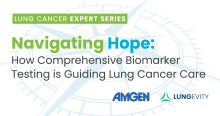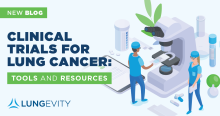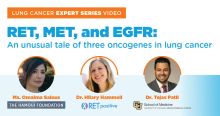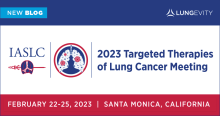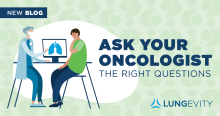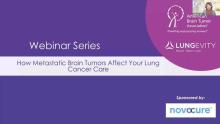Navigating Hope: How Comprehensive Biomarker Testing is Guiding Lung Cancer Care
Join us for a discussion on lung cancer biomarkers to learn what biomarker testing is, why it’s important, and how it can be used to optimize your treatment plans. We are thrilled to welcome our panelists: Balazs Halmos, MD, a thoracic medical oncologist from Montefiore Medical Center in New York; Elizabeth Ravera, a patient navigator at Montefiore; and a patient living with lung cancer who tested positive for the ALK biomarker. The panel is moderated by LUNGevity's Amy Moore, PhD, VP of Global Engagement and Patient Partnerships. This webinar is co-sponsored by LUNGevity Foundation and Amgen.

